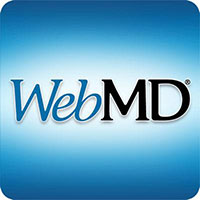‘Striking’ Rates of Anxiety, Depression in HCPs
Frontline healthcare workers had a higher risk of depressive symptoms (OR, 1.52; 95% CI, 1.11 – 2.09; P = .01), anxiety (OR, 1.57; 95% CI, 1.22 – 2.02; P < .001), insomnia (OR, 2.97; 95% CI, 1.92 – 4.60; P < .001), and distress (OR, 1.60; 95% CI, 1.25 – 2.04; P < .001).
“Protecting healthcare workers is an important component of public health measures for addressing the COVID-19 epidemic. Special interventions to promote mental well-being in health care workers exposed to COVID-19 need to be immediately implemented, with women, nurses, and frontline workers requiring particular attention,” the investigators write.
“Striking” Findings
The rates of anxiety and depression revealed by the survey are “striking,” Roy Perlis, MD, associate editor of JAMA Network Open, writes in an accompanying editorial.
Perlis, from Massachusetts General Hospital in Boston, notes that while the “peak of the COVID-19 epidemic remains to be seen, it will ultimately subside.” However, the results also provide “a reminder of the toll that will likely linger: the consequences of chronic stress, including major depression and anxiety disorders.”
Perlis writes that “just as the world has joined efforts to manage COVID-19 infection, it will be critical not to neglect the mental health consequences of the fight against the epidemic.”
In an interview with Medscape Medical News, Jacqueline Bullis, PhD, a psychologist specializing in anxiety, said there are “actionable and feasible” things healthcare providers can do to balance some of the stress they may be experiencing in their day-to-day encounters with patients during the COVID-19 pandemic.
It’s important to acknowledge that it is normal to be feeling anxious and worried right now, said Bullis.
“In the case of coronavirus, some amount of anxiety is helpful in reminding us to take precautions and protect ourselves,” said Bullis, who is with McLean Hospital’s Center of Excellence in Depression and Anxiety Disorders, Belmont, Massachusetts.
Understandably, she added, healthcare providers are probably experiencing heightened levels of anxiety right now that aren’t helpful.
“But it’s important to practice acceptance of whatever negative emotions they are feeling in the moment and remember that that anxiety will dissipate with time. Be compassionate of their own anxiety and the anxiety of others. Sometimes as healthcare providers we put expectations on ourselves to not feel anxious, but we are all human and all struggling through this,” Bullis said.




